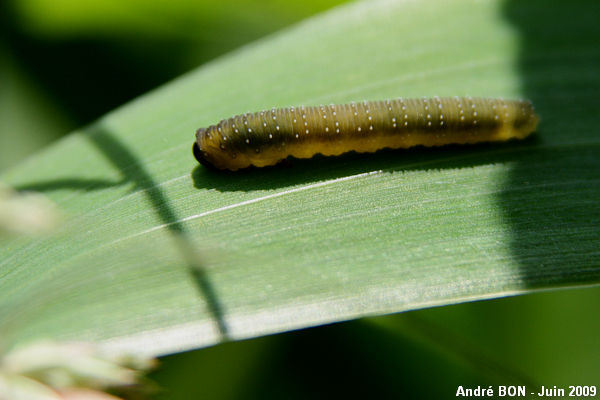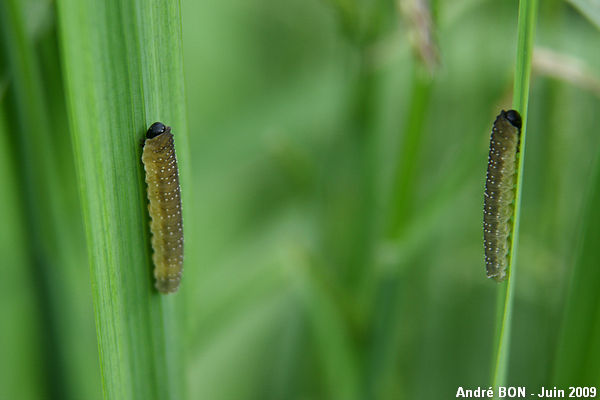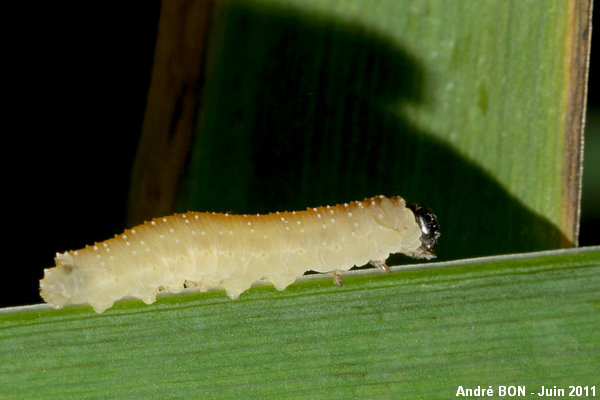


| Iris Sawfly (Rhadinoceraea micans (Klug, 1816)) |



|
|
Scientific name: Rhadinoceraea micans (Klug, 1816) Common name: Iris Sawfly French name: Tenthrède des iris Order: Hymenoptera Family: Tenthredinidae Wingspan : 7-8 mm. Larvae can measure up to 50 mm. Biotope: Pond banks, damp meadows, marshes where Iris grow (Iris pseudacorus, Iris laevigatus or Iris spuria). Geographic area: Europe Observation period : Imagos émerge in May and can be seen till early summer. Larvae can be seen from June to late July. |
Rhadinoceraea micans is a black sawfly. Imagos are often observed on tufts of plants (Iris sp.) where the larvae grow. They rest with the wings held aligned above the body. Like on all other sawflies, there is a broad connection between the thorax and the abdomen. Telling imagos apart is very difficult and usually based, among other particularities, on the wing vein layout. Similar species are Rhadinoceraea bensoni whose host plant is Martagon (Lilium martagon), Rhadinoceraea nodicornis whose host plants are White Hellebore (Veratrum album) and Black Hellebore (Veratrum nigrum) and that you can rather find in mountain regions and Phymatocera aterrima whose host plants are of the Polygonatum sp. genus and which has longer antennae. The larvae you can see on Iris are easy to identify. They have a black head and a pale beige body circled by pairs of white dot rings. There can be important damages to Iris plantations when there is a huge number of larvae. |
| [To know more about the Iris Sawfly] [Next picture] [Top] |

|
I have searched, during some time, what could be this caterpillar species. Without any success as this is a sawfly larva. A closer look at the legs, I would rather say at the false legs, would have put me on the right track earlier. Caterpillars have many less false legs. |
| [To know more about the Iris Sawfly] [Next picture] [Previous picture] [Top] |

|
I have observed larvae in many places, but always a few number of them and I have never noticed an important impact on the host plants. |
| [To know more about the Iris Sawfly] [Previous picture] [Top] |

|
Here is a close-up view on which you can better see the pairs of false legs following the three pairs of true legs on the right. |